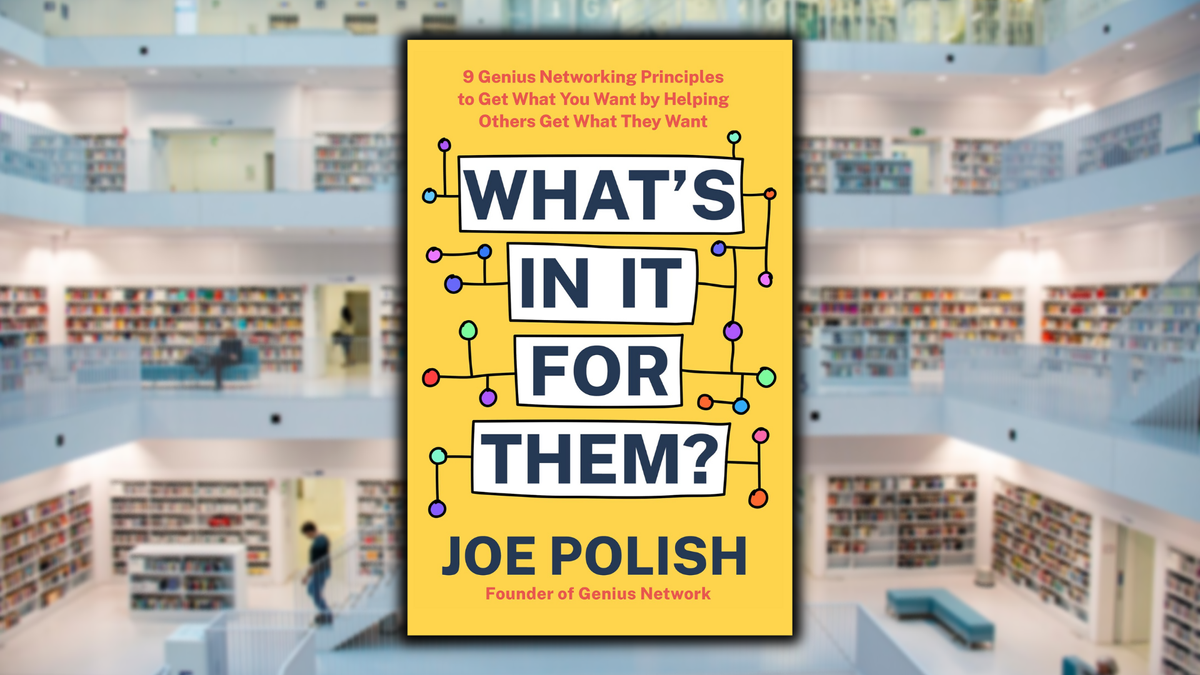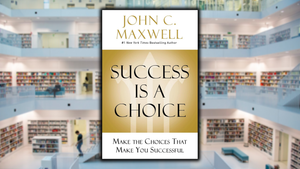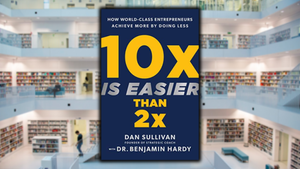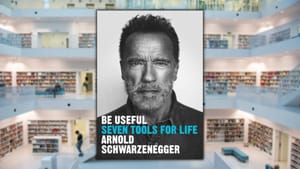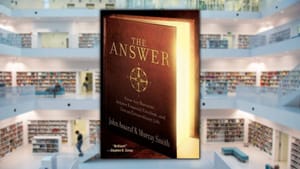
This Book is For:
*Natural-born givers who want to thrive in business - and in life - without neglecting their relationships or being taken advantage of by the takers.
*Everyone who wants to authentically connect with others by "raising the tide for all boats," rather than attempting to play the zero-sum games that only lead to shipwreck and ruin.
*Anyone who feels disconnected in their relationships and from the wider world at large, and wants to learn the secrets of the master networkers and the biggest givers for building friendships and mutually-beneficial relationships that last a lifetime.
*People who know they have unique value to offer the world and are looking for a way to showcase that value, all while recognizing the infinite, inalienable value of everyone else as well.
Summary:
“I treat everybody I meet as if I will run into them again. As much as I can, I want to make a lasting impression and whenever possible, leave everything better than before I showed up. The most positive impacts I’ve made haven’t been overly calculated strategic decisions. They have grown organically out of this simple philosophy.
The bottom line: Spread as much positivity and love as you can wherever you go, not to avoid some imagined future punishment, but because you don’t know the magnitude of the impact that possibility will have on others and the world. Usually, our humble efforts have an effect reaching farther than we think."
-Joe Polish, What's In It For Them?
They call him the most connected businessman on the planet, and this book is the distillation of Joe Polish's absolute best advice for creating and sustaining win-win relationships that last a lifetime.
If you've ever played "6 Degrees of Kevin Bacon," you could probably play "3 Degrees of Joe Polish," and it can seem as though there's no one in the online entrepreneurship space who hasn't been helped by him in some way and eventually come to call him a friend.
His story is a pattern interrupt that diverges from the expected script. Joe succeeded in business by rejecting self-interest - or at least putting it to the side - so he could ask a very simple, yet very powerful question:
"What's in it for them?"
It's a useful question that changes the conversation and can change your life in the same way that it's changed Joe's life and damn near everyone with whom he's shared it.
Thinking in this way has profoundly changed - and improved - my own life, and I have no problem repeating myself over and over again to spread the message that you can get virtually anything you want in life, just as long as you help enough other people get what they want.
That's the name of the game. That's how you win: by helping others win too.
But Joe's ideas are even more radical than that, since, for him, it's not even about the "getting" itself. Rather, it's about a completely different, better, more human way of moving through the world that will ensure that you're welcome wherever you go.
Taking the wrong advice here can result in your building superficial connections, and transactional relationships, and engaging in unsatisfying interactions with others that never lead to any real rapport or personal growth. Instead, take advice from people who actually have the kind of relationships that you want to have with people.
Joe Polish went from dead-broke carpet cleaner to being dubbed “the most connected person on the planet” for his work with Genius Network, one of the world’s most impactful networking groups for high-achieving entrepreneurs. This didn't happen by accident, and he didn't do it alone.
In this breakdown, we're going to be covering some of his main ideas, such as the three keys to connecting with others, the five major assets you need to invest in your relationships, the importance of becoming a "pain detective" to figure out how you can best help the people you encounter in life and business, and how you can become a "first domino" in the lives of others, spurring them on to greater growth and self-actualization.
We're also going to explore why you should become a "brain extender" for others, and how you can recognize the infinite human value that others possess simply by being alive and conscious.
Think of Joe's book as Dale Carnegie's How to Win Friends and Influence People for the 21st century. While Carnegie's book is still absolutely worth reading, Joe's book represents the future of networking, while at the same time, the underlying themes and success strategies are as old as humanity itself.
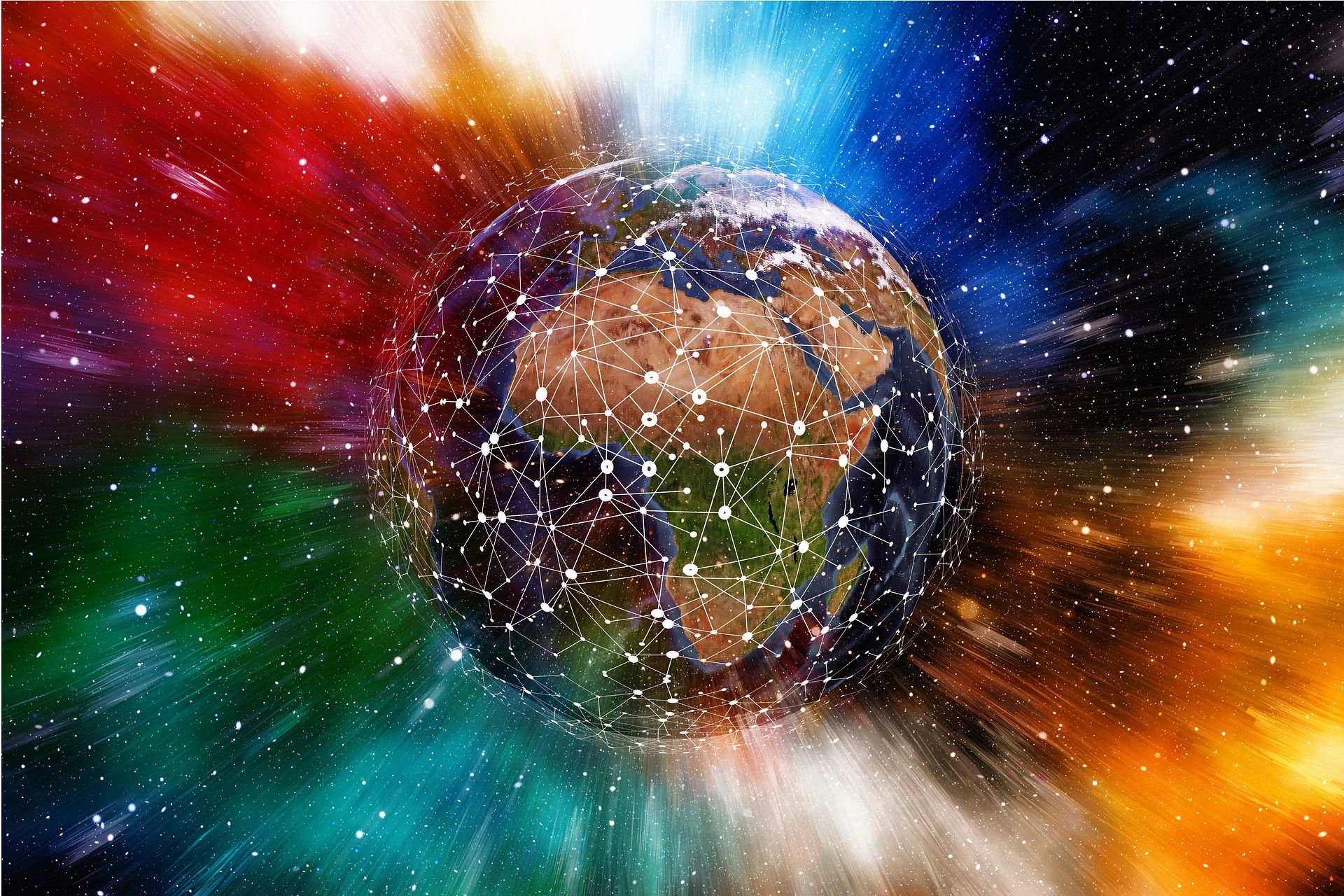
Key Ideas:
#1: Invest These 5 Major Assets Into Your Relationships
“The first secret to the successes I’ve had in life and business is simple: I invest more time, attention, money, effort, and energy into my relationships than I do anything else, and I do so on the longest timeline possible.”
Most of the success strategies that people use do actually work, it's just that they don't stick to them for long enough.
Like the proverbial miner who's two feet away from gold when he puts down his shovel, we stop putting time, attention, money, effort, and energy into our relationships before they bear fruit.
Relationship-building is, by definition, a long game, and the proper mindset to have here is that you're going to run into these people again.
If you act from the belief that you're going to have repeat exposure to the people you see and interact with every day, that helps you to make sure that your words and actions are building the relationship over time and helps make sure they're not treated as simply one-off interactions with people you'll never see anymore.
As they say, be good to the people you meet on the way up, because you'll be meeting them again on the way down!
Joe's advice goes deeper than this, though, because it's not just about avoiding some future punishment for being a jerk to people, but rather it's about moving through the world in a way that spreads life, and that makes you welcome in whichever rooms you happen to enter.
Most people simply won't do this. They put down their relationship shovels when they're two feet from gold. Not only that, but many people don't like to give of themselves first. But as Joe teaches, life gives to the givers. I believe that most people are actually good and decent, but many times you really do have to go first.
You have to prove your trustworthiness, value, and friendship first, and then, given enough time, the people you keep giving to will start to notice, and you'll likely become lifelong friends and resources for each other.
This won't happen tomorrow, but you should have started yesterday.
These five resources - time, attention, money, effort, and energy - are Miracle Grow for your relationships, but one of the keys to this is to do it on a long enough timescale. The caterpillar spends most of its life inside the cocoon, only becoming a butterfly in the last few moments. The same idea applies here.
All that being said, not everyone will reciprocate your efforts, and some people will downright take advantage of your good nature to advance their own ends. There are plenty of takers among us who will keep on accepting what you offer, all without any intention of ever giving back.
So how can you tell whether you're wasting your time, or whether your investment is likely to mature?
You really do have to measure your relationship investments the same way you would any of your other investments. Here's what Joe has to say about what to look for:
“The lesson for how you deploy your time, attention, money, effort, and energy is simple: Relationships have a built-in feedback mechanism called growth. Any relationship, positive or negative, will develop and grow as you invest more and more.
The question is, are you growing together in the right direction? Or are you spiraling off into the darkness? What are the by-products or fruits of the relationships? What internal and external transformations is it producing?”
#2: The 3 Keys to Connecting with Others
“The specifics can change, but in virtually any situation, being useful, grateful, and valuable are the three keys to connecting with others – and they never depreciate or go out of style.”
The greatest connectors consistently exemplify the same traits, behaviors, and attitudes, and Joe Polish nails them here. These three keys are the common threads running through the most enduring, mutually beneficial relationships.
First, look for ways to be useful to the people you are meeting. What are they moving towards? What are their goals and aspirations? How can you help them realize those goals, even in a small way?
In my own life, I make sure that the people around me are winning. The success of my friends is felt almost as strongly as my own success, and whenever I can help my friends advance toward something that's important to them, not only do I feel great but the relationship grows as well.
Next, make sure that the people around you realize how much you appreciate them. It sounds too simple for most people to take it seriously, but it really is that simple. Most people have a craving for appreciation, and if it's not glaringly obvious how grateful you are to have them in your life, you're not making your feelings clear enough.
Tell them; show them, repeatedly. Offer your sincere gratitude for their friendship over and over again, because it's important. People notice. They feel it. And when they come to realize that your feelings are genuine and that your gratitude isn't going anywhere, it's at that point where the relationship starts to become too strong to break.
Being valuable to people is similar to being useful to them (and also to being grateful), but to me, it goes further than just helping them accomplish goals or making them feel good.
Being valuable to someone extends further across time. Usefulness is a more short-term affair, where you can help someone accomplish some specific, immediate aim, whereas being valuable to someone is for life. You're not going anywhere. You're willing to serve as an example of what true friendship can look like, and you're willing to commit to the long-term success of everyone with whom you're intimately acquainted.
As I always say (and which I believe I got from Jim Rohn), is that you can get virtually anything you want in life, as long as you help enough other people get what they want. I think about that idea literally every single day of my life, and I bring it to life in all of my interactions.
I want to see people succeed.
I want to help people succeed.
I want to raise the tide for all of us - by being useful and valuable, and by showing gratitude for the blessings we bestow on each other - and in my own life, I keep trying to find ways to give more. To be more useful, to show more gratitude, and to increase my value to others.
Aside from all that, however, it's just a better way to move through life.
Being a giver just feels better than being a taker, and consistent takers who never turn into givers don't usually make it. And if they do somehow succeed, they're almost destined to lose it all again, because they're defying one of the most foundational laws of human relationships, which is that we exist for each other, not simply for ourselves.
#3: Become a Pain Detective
“To be better at life and relationships, learn to ask, ‘How are they suffering, and how can I help?’”
Joe has a great term he uses to describe someone who consistently seeks to discover how and in what ways other people are suffering, and who keeps trying to discover new ways in which they can help. He calls them pain detectives and advises that you adopt this perspective when meeting others for the first time.
For my own part, I like to focus on the positive ways in which people are already winning, and then help them succeed even further. I talk about this a little bit in the View from the Opposition section below.
That being said, the pain detective perspective is a powerfully compassionate one to take. Here's what Joe himself has to say:
“When facing problems in life or relationships, remember that everyone is suffering in their own way – and often more than you realize. This will increase your empathy, create opportunities for relationships, and much more.”
Thousands of years ago, Plato is said to have said, "Be kind, for everyone you meet is fighting a hard battle." Although it doesn't appear in any of Plato's written works, Joe Polish is reviving that idea here, and it's wonderful to take it into consideration when interacting with people.
Most people aren't really seeing and responding to you when they engage with you. They're bringing their past pain - what happened to them during their childhood, what happened to them last week, what happened five minutes ago - into the present interaction with you, and it helps to realize this and to make allowances for it.
Cut people a break, basically.
That doesn't mean that you let people speak to you any way they want to, or walk all over you, but it does call for a little more patience and understanding when people don't treat you how you expect to be treated.
A much better way to move through life is to get curious about other people's pasts and other people's pain and ask yourself how you can help alleviate it, how you can be even just one small part of the solution.
Again, it just feels better to show up in this way. It's better for all of us when we think about how we can alleviate each other's pain, rather than unconsciously adding to it.
Thinking and behaving in this way will influence how you speak to people and how you treat them, and it will qualitatively change the kind of responses you get from people and how they remember you and think about you after you have separated.
#4: Become a Brain Extender for Others
“Death is a great tragedy…a profound loss…I don’t accept it…I think people are kidding themselves when they say they are comfortable with death.”
-Ray Kurzweil
Speaking of long-term thinkers who are ahead of their time, we've got Ray Kurzweil, Google's resident futurist and inventor who takes more than 100 pills per day to help him live long enough to see the singularity, the point at which he believes that advances in medical technology will allow him to live forever.
Follow me on this one, because I am going to bring this back around to relationships.
Here's where he shows up in the context of What's In It for Them?:
“One of Ray’s biggest ideas is the idea of ‘the singularity,’ when there will be a melding of humans and machines. In fact, we’re already experiencing this with smartphones, VR, and other technologies that he refers to as ‘brain extenders.’
While Ray’s ideas appear to be mostly about technology and brain extension, you can think of the network effects of appreciation in exactly the same way. Phones, computers, VR, and tablets expand our capabilities to find things out, to connect with others, to appear smart, to get answers.
If you become a brain extender for others, people will love you the way they love their phones. If you think of yourself as an extender of what people want, they’re going to want to hang out with you.
You do this by connecting them to people, insights, solutions, results, and so on that extend their capabilities, or simply by making them laugh or helping them get what they want. By doing so, everyone you touch sees their value increase; you are quite literally appreciating them.”
Being a brain extender for others - a connector - makes you indispensable to them, and solidifies your place in their network. A slightly more cynical version of this idea appears as Law #11 in Robert Greene's The 48 Laws of Power: "Learn to Keep People Dependent on You," but you can see how a good person like yourself can use this same idea for others' benefit instead!
Versions of this idea keep coming up again and again in the relationship-building literature, which gives you some idea of how critical it is to the health of your network. Extending the capabilities of others increases your value to the entire network, thereby making the entire network stronger.
If you become a problem-solving pain detective, focused on connecting people to the insights, solutions, and resources that will help them get what they want in life, you will be rewarded in your relationships. A rising tide lifts all boats. Expand the capabilities of the global network, and you expand the potential and capabilities of all of us.
#5: Be the First Domino
"I am not a teacher, but an awakener."
-Robert Frost
Each and every one of us can think of at least one person in our lives who set us on the path. There was - or is - someone in your life who believed in you when you didn't; someone who saw something in you that you didn't yet see in yourself, and who helped you actualize your latent potential.
The luckiest among us will have had parents who were our "first dominoes," but these influences would also have come in the form of books, teachers, coaches - role models of all kinds.
Some people go their entire lives without hearing someone tell them that they love them, support them, and believe in them, and it's always an exceptional event when these first dominoes appear in our lives. We remember them for the rest of our lives.
The important point here, though, is that you can be the first domino for someone else.
I believe that most people are basically decent, friendly, and good, but I also think that sometimes you just have to go first. You have to get things moving, and you have to put yourself out there to inspire someone, to give them an encouraging nudge in the proper direction, and to help move them further along the path.
My own first dominoes were undoubtedly my parents, but I could name dozens of dominoes that kept appearing at different times in my life to help show me what was in fact possible for me.
Reading books fundamentally changed the entire trajectory of my life, and an entire lifetime of accumulating and sharing the knowledge found in the best books eventually led us to this moment, where I sit, right here right now, (hopefully) being a domino for you.
Keep up the momentum. Become a domino for someone else, and show them that what came before them is nothing compared to what lays dormant inside them, and what could be in store for them if they fully committed to actualizing their own potential. Give them everything you can in order to help them be successful, happy, and rich - in every sense of the word.
#6: Disconnect to Connect
“As much as life is about connecting with others, it is also about disconnecting from what doesn’t serve you. As you go through this journey, realize that you always have the power to walk away. Also notice when other people are walking away from you, particularly if it’s a repeating pattern.”
Sometimes it's possible to achieve a positive result via negativa - that is, the negative way, in the sense that you're removing something, doing less of something, etc.
The author Oliver Burkeman, in his excellent books, The Antidote, and Four Thousand Weeks, takes this negative route and shows how we can become happier by accepting negativity and can expand our time by embracing the finitude of our lives, rather than trying to get it all done.
In the same way, Joe Polish recommends removing yourself from the parasitic relationships that are draining you of life, and in so doing freeing up more energy to give to the people and relationships that are making your life better.
Thus: disconnect to connect. Eliminate negative influences and "takers" from your life, and enter the "right rooms" filled with the right people, focused on positivity and expansion, rather than negativity and poisonous attitudes of entitlement.
We only have so much energy to expend each day on the people and projects that mean the most to us, and so we have to be unbelievably conscious and intentional about where exactly we deploy that energy. Because it's not limitless. Far from it.
Your attention and energy are your two most important resources (along with your time, your health, and your money), and you just can't leave them up to chance. They're far too valuable to allow them to go to waste.
#7: Recognizing Infinite Value
“Of course, when it comes to value, as we’ve seen, we have to differentiate between what is real value and what is up for debate.
For the mere fact of being alive and conscious, you have value. You are valuable because you are you and because you exist, and nothing can change that fact (though we find it all too easy to forget).
When we’re talking about value here, it’s built on top of that truth. That secondary value we’re talking about is how you move through the world and how other people respond to you.
It’s not that other people’s opinions of you don’t matter at all, because they do to a degree – it’s just that you can’t stake your value on something that can go up and down every day.
You have to stay anchored in your own goodwill and your own value. Then you have to put in the work so other people can see it too.”
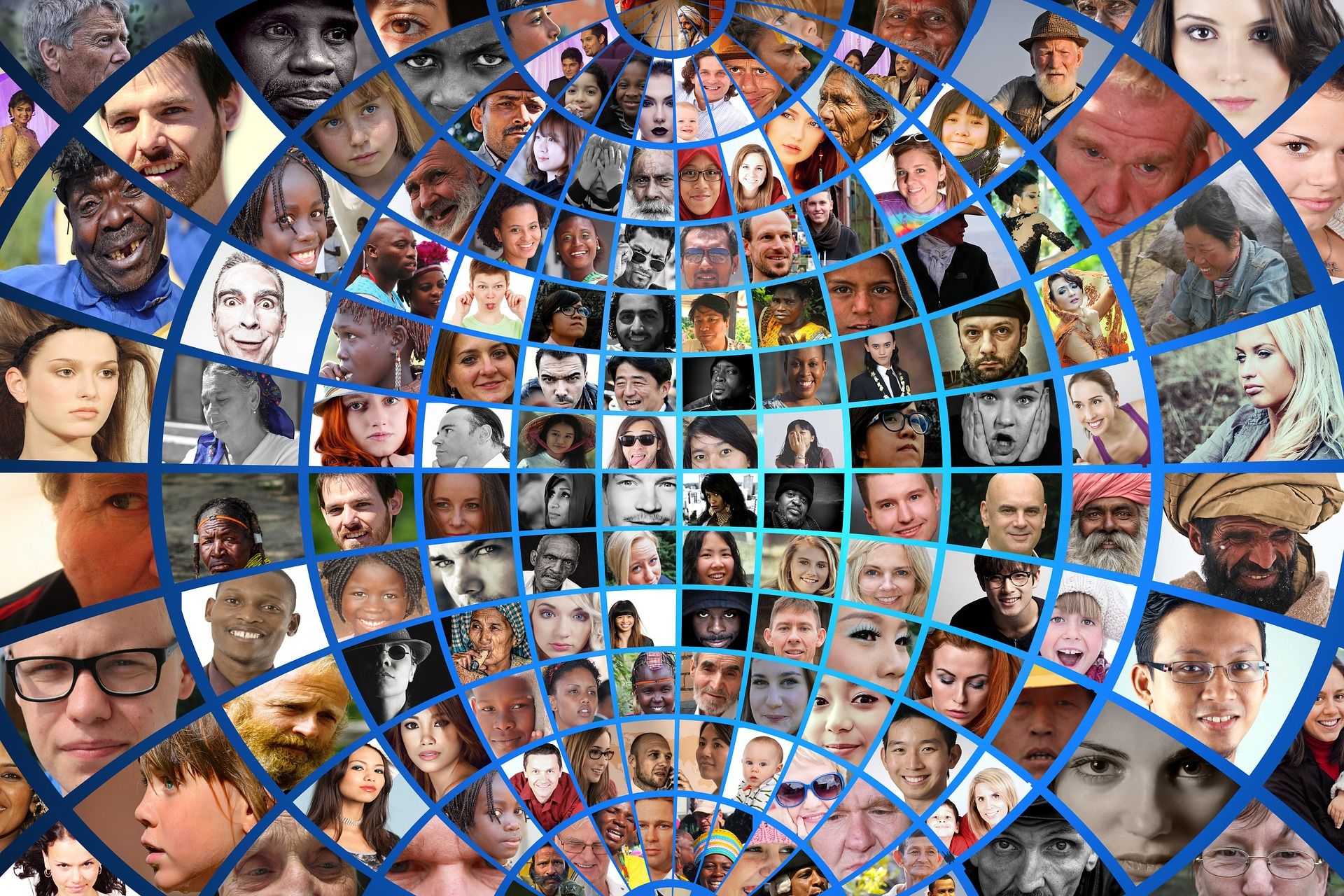
Book Notes:
“The secret to success in life and in business is learning how to connect and form relationships with other people – and most people don’t know how to do that.”
Ask, “How are they suffering, and how can I help?”
“To connect in virtually any situation, focus on being useful, grateful, or valuable – or some combination of all three. Put another way, all three of these things deliver a positive result of some kind to other people.”
“Trust is comfort plus time.”
“Where can you build greater trust, rapport, and comfort in a key relationship today?”
“At the lake, I explained my situation to this man sitting on the tailgate of a pickup truck – how I wasn’t making money in carpet cleaning and wondered if there wasn’t a better business to go into. ‘Does anybody in your business make money?’ he asked. I told him that a few people did. ‘Then the business isn’t the problem. You’re the problem.’”
“By identifying pain points and making positive space for people, you open the door for transformation. Good marketing applies this seamlessly: identifying and connecting with the pain of the other person, connecting with their bigger future, and being the bridge.”
“A relationship is a collaborative connection.”
“Whenever you expand a person or situation’s energy, you create incredibly powerful network effects.”
“There is a difference between a return from relationships and a return on relationships. Understanding the difference is key to figuring out how to allocate your time, money, and energy.
The first is a qualitative question: ‘If I were to invest time, money, and energy, would I get a return from this relationship?’
The second is a quantitative question: ‘Now that I’ve decided, how much time, money, and energy should I invest to get a return on this relationship?’
It's the difference between merely having high-quality people in your network and interacting with those people in a meaningful way.”
“When maintaining relationships, nearly all the biggest dangers and traps come from mismanaging three things: your time, energy, and money.”
“There is no perfect way to build relationships without some mistakes, no right list of the people to know. We are always missing opportunities, and there are always ways we can better leverage our time.
At the end of the day, though, are you happy? Is your life working? Are you learning and expanding yourself? Most importantly, are your relationships fun? They’re supposed to be.
People hang out with people they like. People do business with people they like. People may do business with people they don’t like, but usually because they have no other choice. As soon as they have options, they will find the people who can solve their problem and make them feel good. It is true no matter where you go.”
“Be the person others want to connect with.”
“You don’t fall in love with another person; you fall in love with who you get to be around them.”
“We can be paid for our work in five distinct ways. Aside from being utilized, we can be rewarded, appreciated, referred, and enhanced. As it turns out, all five ways also happen to be useful.”
“What’s interesting is that the more you give, the more your gratitude seems to grow.”
“The cave you fear to enter holds the treasure you seek.”
-Joseph Campbell
“There are some games in life that you can only win by not playing.”
“The important thing to remember is that you’ll need to connect with other people to make big things happen – and understanding what they want from life and how they want to be treated is crucial to that.”
“Instead of saying, ‘Have a great day!’ he says, ‘Make it a great day!’”
“I believe laughter has a greater impact on a person’s well-being than gratitude or grit, even though those are also enormously valuable.”
“In any given situation, we have an expectation of how polite people will be, how kind they’ll be, and how interesting the overall event will be. Similarly, we can get our energy drained by a disappointing social experience – or we can be invigorated when people surprise us by being kinder, cooler, and more memorable than we expect! The goal is to exceed whatever expectations someone has. That makes them happy and you memorable.”
“Sometimes the best way to get out of a hole is to stop digging.”
“Deal with people at the level at which they respond.”
“The difference between lettuce and garbage is timing.”
“Some people don’t effectively establish authority, perspective, and value, so they get taken advantage of or taken for granted. Some people are simply too accessible and too available.”
“You can genuinely appreciate people at the intersection of their wants and your awareness of those wants. Sometimes you do that with a smile, sometimes you do it with a kind ear, and sometimes you do it by selling them a product or connecting them to someone you know.
With appreciation, it’s not about what you want. It’s about what they want and your ability to link them to it. It’s about what power they have to be helpful and valuable in the world and the space you can create for them to step into that power.”
“Always get as close to in-person as you can.”
“Close the emotional distance in your relationships.”
“Why don’t we treat all of our conversations as crucial?”
“We tend to look for what seem like the ideal situations and scenarios to deploy our best selves. But what if we just led with our best, no matter what?”
“There is no relationship between being good and getting paid, but there is a huge relationship between being good, being a good marketer, and getting paid.”
“What I’ve learned in writing this is that even if the appearance of things changes, the essence stays the same. People want to connect. People want to feel special and cared about. People want to feel appreciated. People want to have their problems solved. And if you’re a person who cares about others and can solve their problems – someone who understands what’s in it for them – there’s no limit to what you can accomplish or the peace and joy you can find in your own existence.”
“Finally, a big thank-you to everyone who has ever been patient and kind to me even when I acted like a jerk to them. We tend to judge ourselves by our intentions and others by their actions, so thanks for doing it the other way around! I promise to do my best to live up to the words of this book, to help others create ELF [easy, lucrative, and fun] lives and businesses, and to keep asking, ‘What’s in it for them?’”

Important Insights from Related Books:
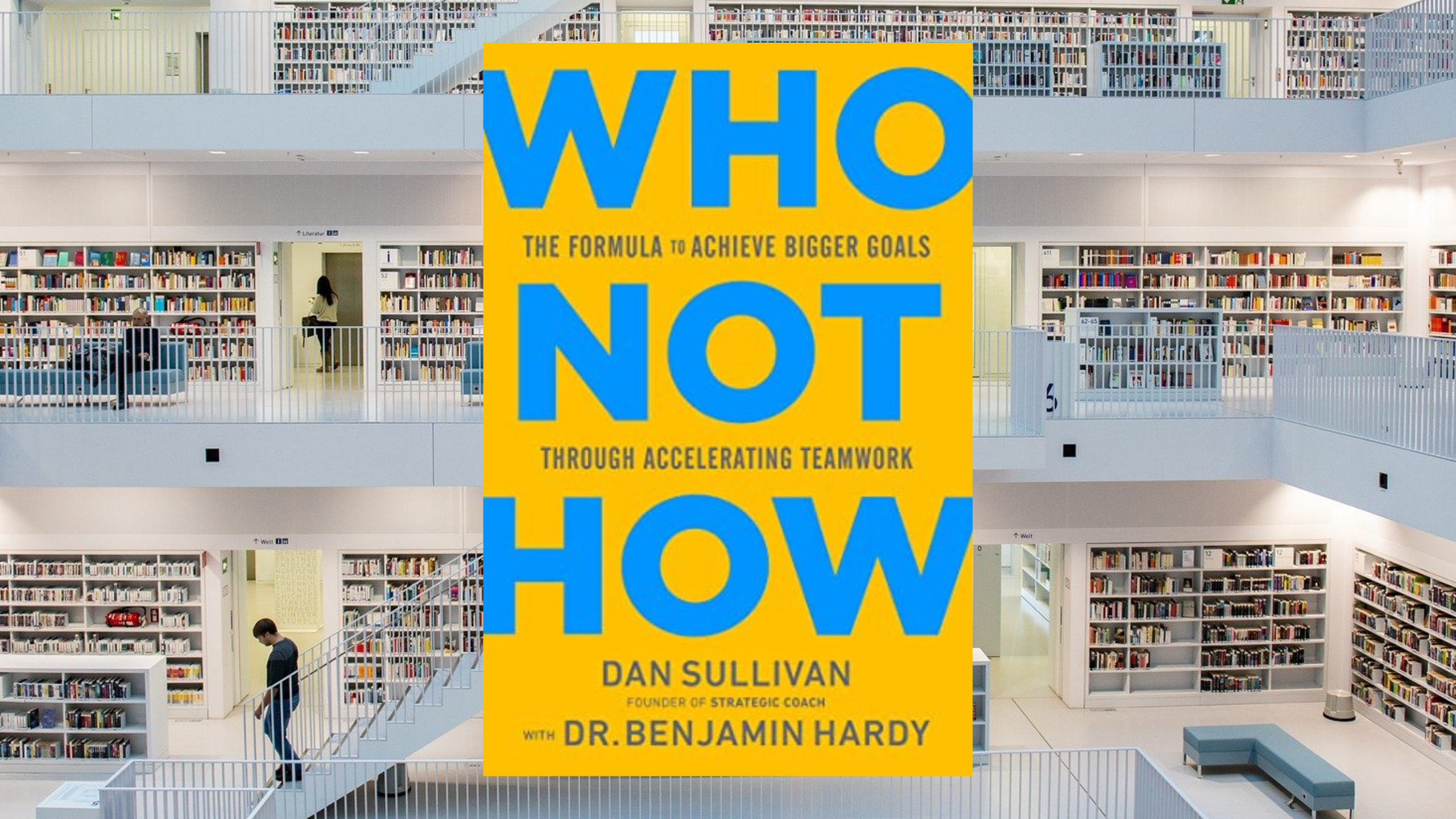
Who Not How, by Dan Sullivan and Dr. Benjamin Hardy:
Whatever your limitations, there is someone out there who can help you move beyond them. The best way to solve a problem is to find someone who already knows how to solve it, and that's pretty much the "one-sentence summary" of this incredibly valuable business book.
Instead of asking, "How can I solve this problem for myself?" a better question is to ask, "Who can I get to help me solve this?" Asking the former is just asking for burnout, frustration, and inferior results. Because the truth is that there are people out there who are experts at doing the things you either hate to do, are bad at, or both, and they are more than willing to help you achieve your goals.
The right person already knows how to solve your problem, so they can get to work immediately. As the authors explain, freeing up your time is one of the first steps towards increased financial freedom, and if you want to experience the full power of teamwork, you're going to have to relinquish at least some control over how things get done. Find your Who, so they can get to work on the How.
It's a mindset shift more than anything - retraining your brain to see potential and opportunities for collaboration and ease, rather than slugging through your daily tasks thinking you have to do everything yourself. You are limited in what you can do alone, but together, there's almost nothing we can't do.
Sample Quotes from the Book:
“The best way to measure your progress is by noting the amount and quality of collaborations happening in your life.”
“Once you’re committed to the result you want, you’ll find that Who. When you do find that Who, you’ll see how ridiculously simple it was for them to produce your desired result, then you’ll begin to see just how small you’ve been playing. You’ll begin to set bigger and bigger targets, and you’ll commit to those targets faster by getting the Who that is equipped to produce the result.”
“If you’re going to apply higher levels of teamwork in your life, you’ll need to relinquish control over how things get done.”
Read the Full Breakdown: Who Not How, by Dan Sullivan and Dr. Benjamin Hardy
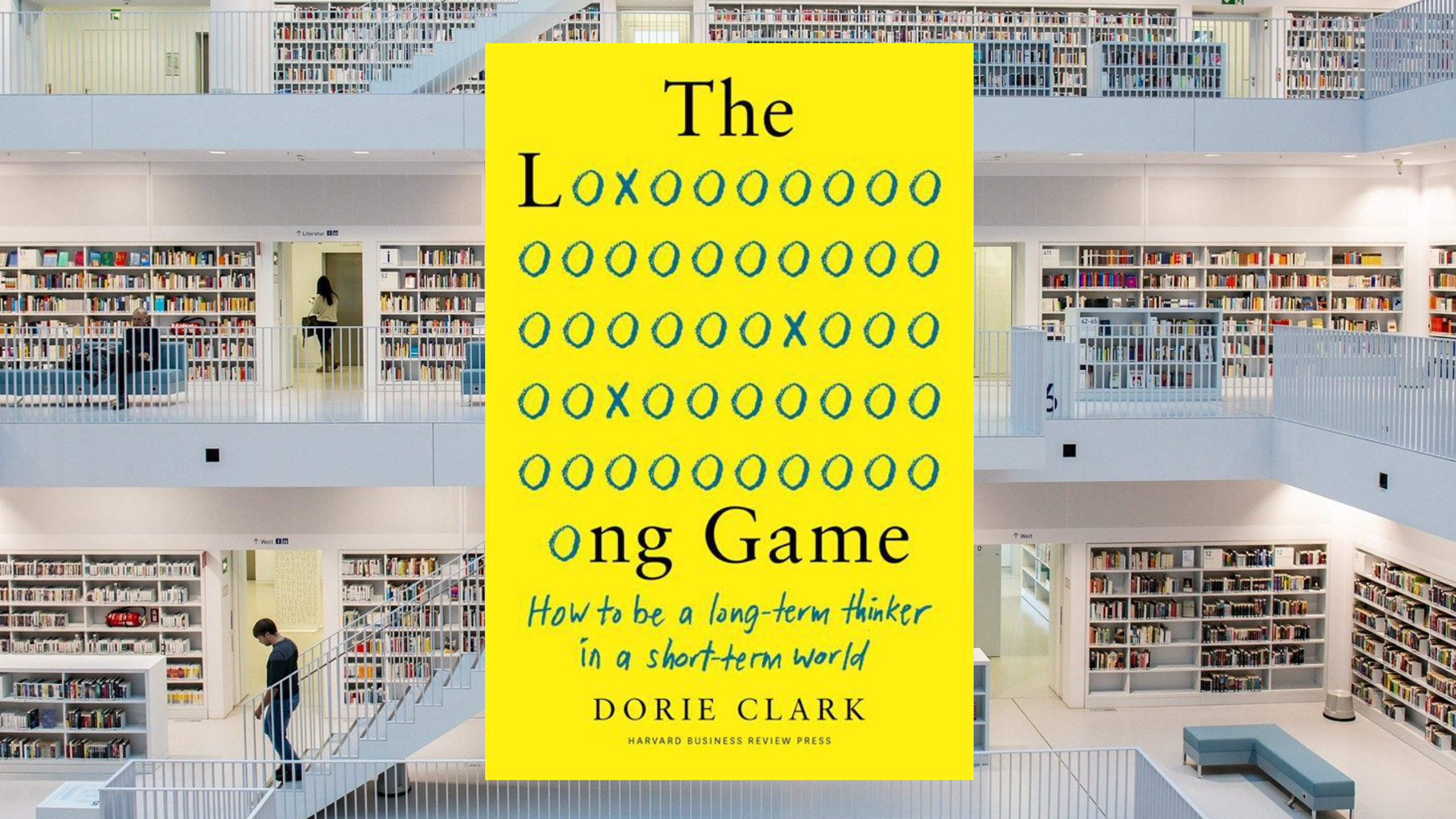
The Long Game, by Dorie Clark:
While the rest of the world thinks we're playing checkers, readers of this book will know that we're actually playing chess instead. The greatest Grand Masters in chess plan many, many moves ahead, and the best players in the game of life tend to do the same thing. That's what The Long Game is all about.
Creating the white space in our lives necessary in order to step back and take in the whole picture is one of the goals of this book, and here Dorie Clark presents a ton of high-level concepts to help you make this kind of thinking more common in your daily life.
Your personal goals need a long-term strategy, and this book will help you craft one for yourself. It will encourage you to "think in decades" and help you to think bigger.
In this breakdown, we also cover several extremely important ideas, such as strategic patience, raindrops of success, and more. We also let you know the truth about ridiculous goals and how to tell if what you're doing right now is working.
Sample Quotes from the Book:
“Waiting a year to ask for any favors prevents anyone from inferring that you have an agenda. And frankly, it stops you from having one, even subconsciously. It lets you step back and concentrate on building a genuine friendship.”
“People are busy, so you need to give them a reason to pay attention to what you say. Social proof – your demonstrated credibility – is a quick way to do that.”
“When you connect to others with an infinite horizon – no agenda whatsoever other than being helpful and deepening your relationships with interesting people – that’s how opportunity happens.”
Read the Full Breakdown: The Long Game, by Dorie Clark
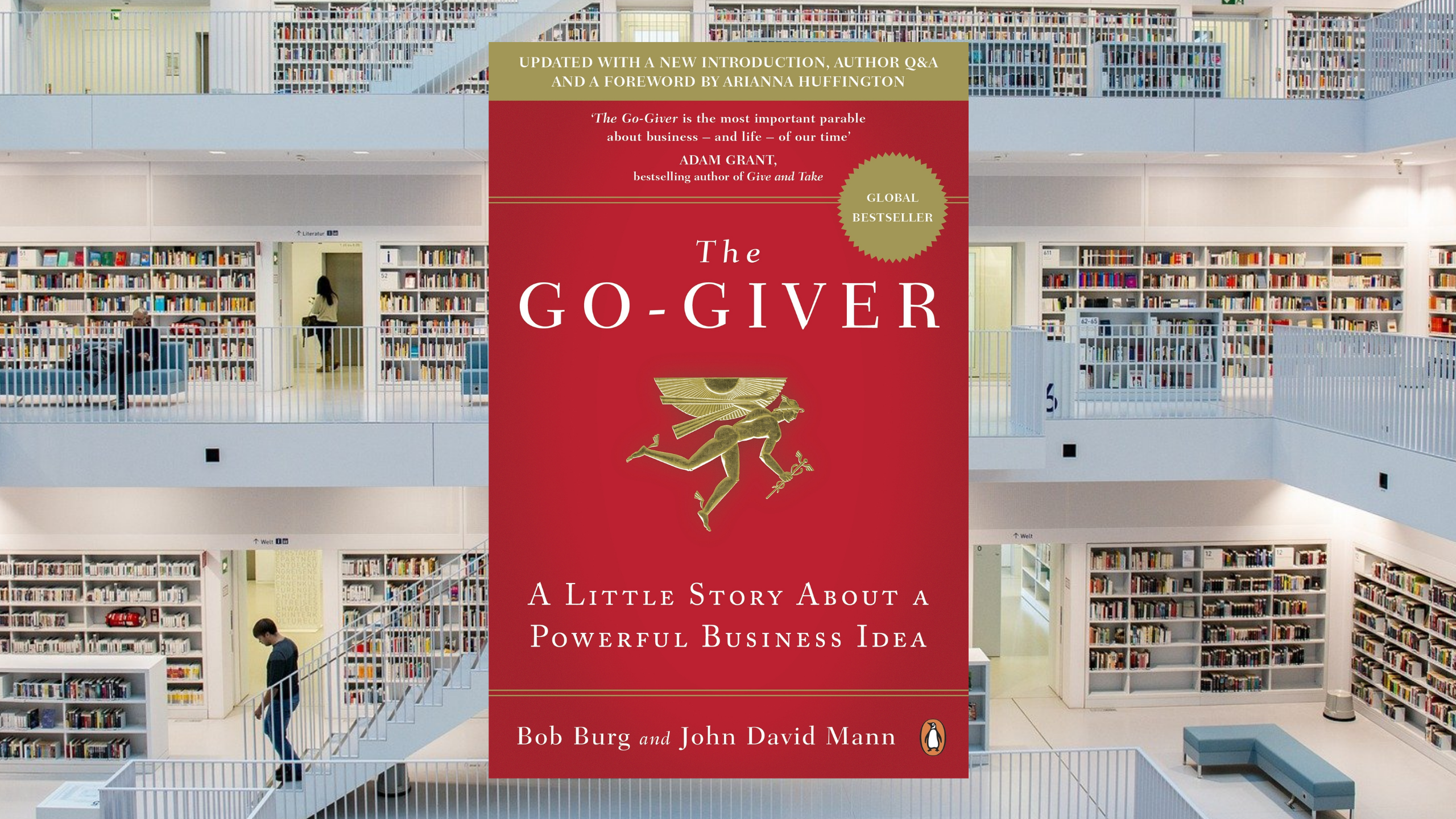
The Go-Giver, by Bob Burg and John David Mann:
In the modern economy, mean guys finish last. There's been a complete reimagining of the possibilities for mutual assistance and cooperation that's transforming how we do business, and today, it's possible to "do well by doing good."
The Go-Giver is a wildly popular business book that demonstrates "The Five Laws of Stratospheric Success" through the parable of Joe (no relation to Joe Polish), an ambitious young man who desperately wants success but has no idea how to get it.
It's simply studded with counter-intuitive ideas about the nature and power of giving, and its message is a timely one. The world is more interconnected and abundant than it's ever been, and there's more than enough success to go around.
The key is to give without expecting anything in return - to trust, knowing that what you put in is pretty much exactly what you get out. That's how life works!
You wouldn't expect to get heat from a fireplace without putting in a log, or expect to earn interest from your investments without making a deposit, so why would you expect to get anything before you're willing to give?
Sample Quotes from the Book:
“If you want more success, find a way to serve more people.”
"Your true worth is determined by how much more you give in value than you take in payment."
“While the world may at times appear to be a dog-eat-dog place, there is actually a set of much kinder and vastly more powerful principles operating beneath the surface of casual appearances.”
Read the Full Breakdown: The Go-Giver, by Bob Burg and John David Mann
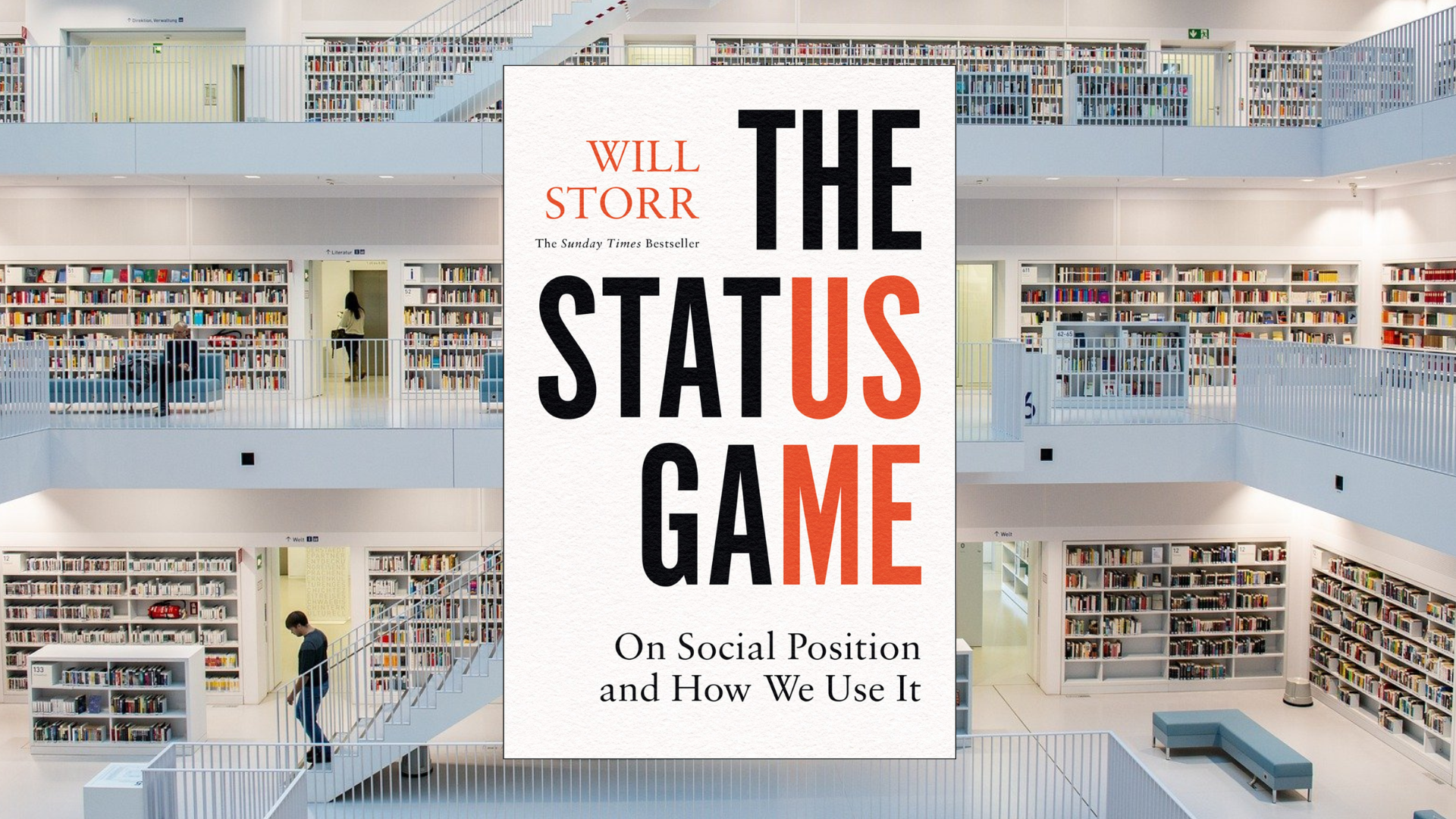
The Status Game, by Will Storr:
Put any group of humans together, and almost instantly they'll start trying to figure out who should lead, who's most worthy of respect, and who should be praised and emulated.
Not only that, but we each carry around a sense of where we stand in that hierarchy, and many of us go to rather extreme lengths in order to rise to the top.
According to the award-winning writer and journalist Will Storr (award-winning = high status!), the "status game" that we're all playing is an invisible thread that runs through the best and the worst of what human beings do all day.
Whether we're "winning" or "losing" affects our happiness and our self-esteem, our relationships with others, our goals in life and whom we choose to copy, and even how long we'll live.
All this being the case, just think about how complicated it is to be alive!
You've got all these forces - the cravings for status and for love, social conditioning and the impact on the individual of the wider culture, the subconscious fear of death, the swirling emotional storms affecting our thoughts and actions all day long, and so much more - how do we even live? How do we make sense of it all?
For that, we should be grateful to Will Storr as he explains a few of the rules of the Game of Life...
Sample Quotes from the Book:
“We can think of our reputation as a symbolic version of us that exists in the minds of others. Human brains required the capacity to store these highly detailed symbolic selves. Our neural worlds are crowded with hallucinations of others so vivid they can almost be summoned at will. We all walk around with everyone we know crowded inside our heads.”
“Status is an essential nutrient found not in meat or fruit or sunlight but in the successful playing of our lives. When we feel chronically deprived of it, or disconnected from the game, our minds and bodies can turn against us. To our brains, status is a resource as real as oxygen or water. When we lose it, we break.”
“We should remind ourselves of the truth of the dream: that life is not a story, but a game with no end. This means it isn’t a final victory we should seek but simple, humble progress: the never-ending pleasure of moving in the right direction. Nobody wins the status game. They’re not supposed to. The meaning of life is not to win, it’s to play.”
Read the Full Breakdown: The Status Game, by Will Storr
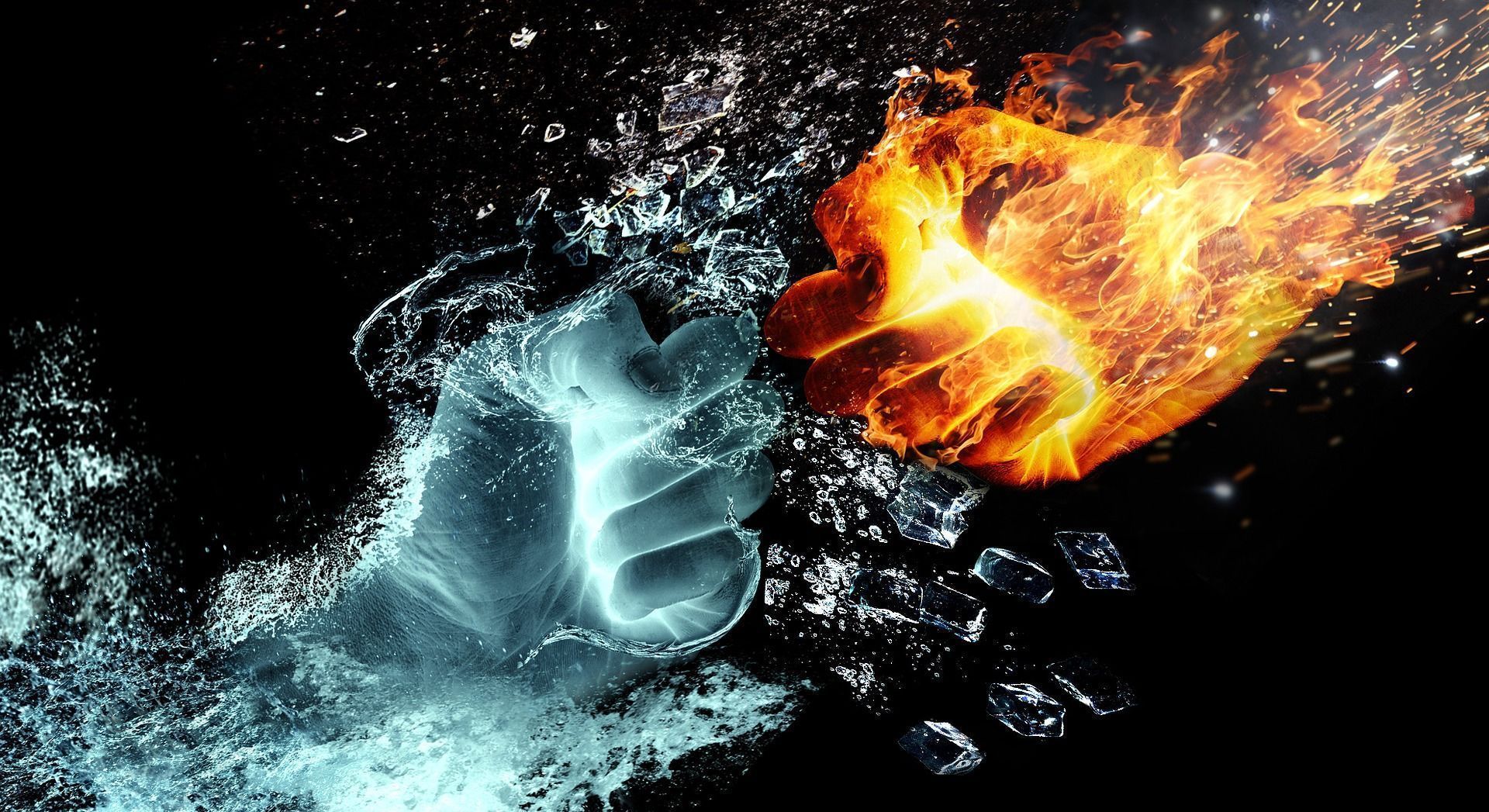
The View from the Opposition:
No one's ideas are beyond questioning. In this section, I argue the case for the opposition and raise some points you might wish to evaluate for yourself while reading this book.
#1: The Book Feels a Bit Disjointed
This is not necessarily a make-or-break criticism, and the book does indeed have the feel of a flowing conversation, moving back and forth between ideas and stories having to do with the general theme of strong, positive-sum relationships, but I wouldn't say it has a "thesis" that everything is building towards.
This may make it seem a little disjointed to some readers - there's no "objective" that Joe is driving for. In that way, however, the book mirrors the kind of relationships that Joe's advice will help you cultivate.
The best relationships in life aren't usually goal-oriented, and this book is more like a deep conversation between friends about how to serve each other better.
#2: Find the Positive Instead of the Pain
I love Joe's idea of becoming a pain detective, and working to undercover the problems that people are dealing with so you'll know how you can help them better. That being said, I usually like to focus on the good in life, rather than on what's going wrong.
Bringing out the best in people can happen using both approaches concurrently, and I absolutely see the value in Joe's approach, but again, I like to build on strengths rather than shore up weaknesses.
In an example I use all the time, race car drivers look away from the wall when they realize they're about to crash, and so use the direction of their focus to deliver them from disaster, rather than focusing on the wall, thereby making it more likely that they'll crash into it. You get what I'm saying!
Plenty of people have pain - virtually all of us, as Joe rightly points out - and if you go looking for it, you're sure to find it. But if you go around looking for the good in life, that's exactly what you'll find as well.
"The test of a first-rate intelligence is the ability to hold two opposed ideas in the mind at the same time and still retain the ability to function.”
-F. Scott Fitzgerald

Questions to Stimulate Your Thinking:
The quality of your questions determines the quality of your life. That's also how you get the absolute most out of any book that you decide to read:
You ask great questions the whole time - as though the book was on trial for its life.
Here in this section are a few questions that can help guide and stimulate your thinking, but try to come up with your own additional questions, especially if you decide to read this book the whole way through...
#1: "What are the most transformational relationships you've ever had? What growth was produced through the relationship?"
#2: "When deciding whether or not to do or say something, always ask yourself, 'Does this grow the relationship?'"
#3: "Where can you build greater trust, rapport, and comfort in a key relationship today?"
#4: "Think about anyone important in your life and ask, 'How are they suffering, and how can I help?'"
#5: "Where are you being inauthentic in your relationships? Where can you muster the courage, today, to be more honest and authentic?"
#6: "What is one common way you've seen people you admire being expressive and open that you feel uncomfortable doing yourself - and what's stopping you from pushing yourself to try that same behavior in one of your key relationships today?"
#7: "What return are you getting on the investments you're putting in your relationships?"
#8: "How can you make your relationships more fun and flowing? Where can you remove the needless friction?"
#9: "In your life, who are the people that you would always answer the phone for and what kind of traits do they have in common? Who would always answer the phone for you?"
#10: "If you could only show more appreciation in one relationship or one area of your life, where would doing so be the most impactful?"
"Judge a man by his questions, rather than by his answers."
-Voltaire

Action Steps:
So you've finished reading. What do you do now?
Reading for pleasure is great, and I wholeheartedly support it. However, I am intensely practical when I'm reading for a particular purpose. I want a result. I want to take what I've learned and apply it to my one and only life to make it better!
Because that's really what the Great Books all say. They all say: "You must change your life!" So here, below, are some suggestions for how you can apply the wisdom found in this breakdown to improve your actual life.
Please commit to taking massive action on this immediately! Acting on what you've learned here today will also help you solidify it in your long-term memory. So there's a double benefit! Let's begin...
#1: Become a First Domino for Someone Else
Most of us can easily think of at least one person who saw something in us before we ever saw anything of value in ourselves. They showed us even just a little tiny glimpse of who we could eventually become, and, intentionally or not, they set us on the path to realizing that vision.
You can serve that same purpose for someone else - you can be their "first domino" - and in passing on what you've been given, you expand what's possible for all of us. Because you never know what effects your actions could cause!
So find someone whom you sense could be looking for guidance, support, or encouragement, and give it to them. It could be in person (Joe recommends getting as close to in-person as you can), but it could also be online, for someone you've never met. Just give.
Take stock of what's made the biggest positive impact on your life - the books, ideas, mindsets, etc. that made you who you are - and pass them along to someone else who could benefit from them. It could be exactly what they need at this moment.
#2: Send 10 "Pointless" Personal Messages Per Day
Almost every email or letter we get is from someone who wants something from us. It could be money, an introduction to someone, another favor or benefit they think we can confer on them...it's rarely just to reach out and tell us that we're appreciated.
Most people are starved for this kind of appreciation and recognition...so give it to them! You will expand and deepen your relationships, you will stand out in a sea of takers, and you will make the entire world just a little bit better.
So, every day, message 10 people (or 1, or 15, or however many you have time for!) and tell them you appreciate them, tell them a joke, pass along an interesting article they might like, or simply say hi!
#3: Create Your Own "Genius Network"
People pay tens of thousands of dollars a year to be part of Joe Polish's Genius Network, but you don't have to go that far to surround yourself with great people who want the best for you and for whom you can be a great resource as well.
A "genius network" is really just about getting together with likeminded people who are capable of and interested in solving each other's problems and helping each other to become better. You can join a group like this that already exists, or you could create your own, but in every case, we are stronger together.
There are plenty of supportive mastermind groups you could join, but if you want to start one for yourself, simply start reaching out to people in your existing network and ask them if they would have time to meet via Zoom once a week and help each other solve their problems. It doesn't have to be any more complicated or involved than that.
The only thing is that your motives have to be pure. You have to want to give, and you have to make sure that the motives of everyone else in your group are pure as well. Leave the takers to fend for themselves. Your group is for givers, and givers always win.
"The path to success is to take massive, determined action."
-Tony Robbins


About the Author:
Joe Polish is the Founder of Genius Network, one of the highest-level groups in the world for entrepreneurs. He curates the Annual Genius Network Event, Genius Network ($25,000), and 100k ($100,000), all three groups being home to some of the most successful entrepreneurs alive, and is considered one of the most influential connectors in the world.
Joe has also helped build thousands of businesses and generated hundreds of millions of dollars for his clients. He has been featured in INC, Fortune, Forbes, Success, and U.S. News & World Report, among others, and has spoken at Stanford University. Joe also hosts three of the top-ranked marketing and business podcasts on iTunes, including iLoveMarketing, 10xTalk, and GeniusNetwork. He's also changed the lives of many others through his charitable causes, including The Make-A-Wish Foundation, Artists for Addicts, and Genius Recovery, as well as being the single largest contributor to Sir Richard Branson's charity, Virgin Unite.
His documentary CONNECTED: The Joe Polish Story premiered at the historic TCL Chinese Theatre (formerly Mann's Chinese Theatre), and his documentary Black Star won the Audience Choice Award at the Sedona Film Festival. Joe's mission with entrepreneurs and Genius Network is "to build a better entrepreneur," and his mission with Genius Recovery is "to change the global conversation of how people view and treat addicts with compassion instead of judgment and to find the best forms of treatment that have efficacy and share those with the world."
Additional Resources:
Joe-Polish.com | More About the Book
Genius Network | High-Level Business Mastermind
Genius Recovery | Changing the Global Conversation About Addiction
Artists for Addicts | Brought to You by Genius Recovery
10X Talk Between Joe Polish and Dan Sullivan | Podcast
I Love Marketing | Joe Polish's and Dean Jackson's Podcast
This Book on Amazon:
What's In It For Them?, by Joe Polish
If You Liked This Book:
Never Eat Alone, by Keith Ferrazzi
The Laws of Human Nature, by Robert Greene
How to Win Friends and Influence People, by Dale Carnegie
The Go-Giver, by Bob Burg and John David Mann
Never Split the Difference, by Chris Voss
Who Not How, by Dan Sullivan and Dr. Benjamin Hardy
Crucial Conversations, by Kerry Patterson et al.
Talking to Strangers, by Malcolm Gladwell
